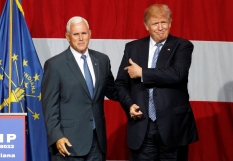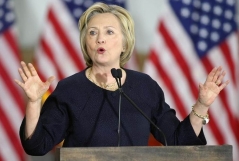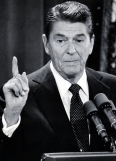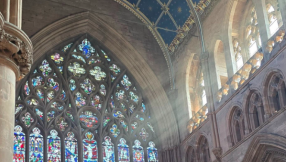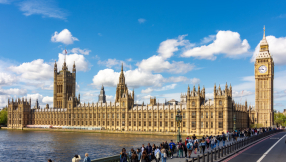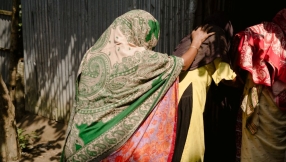Continuing a series on the faith of the American Presidents, which we began with Ronald Reagan, this week we explore the faith of Reagan's immediate predecessor: Jimmy Carter. The Georgia Democrat was America's 39<sup>th president, though he held office for only one term, serving from 1977-1981. After his time in office he continued work across the world, particularly through the non-profit humanitarian organisation he founded with his wife: the Carter Centre. In 2002 he won the Nobel Peace Prize. Here's a brief glance at the faith of Jimmy Carter.
On Peace
Carter said he was committed to peace in his presidency, but also in his extensive humanitarian work that followed. He told Christianity Today: "I can't say my commitments as President were free of my beliefs. We worship the Prince of Peace, and one of the key elements of my life as President in challenging times was to keep our country peaceful. I was able to deal with challenges without launching a missile or dropping a bomb. My commitment to peace was an aspect of my Christian faith. Also, basic human rights are obviously compatible with the teachings of Jesus Christ, and I made human rights a foundation of foreign policy."
On Healing
In August 2015, Carter was diagnosed with cancer, with several spots showing up at the back of his brain. At the time, he was calm, saying he was "perfectly at ease with whatever comes." He declared that his faith was "in the hands of God, whom I worship." Less than seven months later, he was happy to tell his sunday school class that he no longer needed treatment.
On Racism
Carter recently accused the Trump campaign of exploiting "inherent racism" in America, suggesting Trump's success was down to his "heavily racial overtone". He added: "When you single out any particular group of people for secondary citizenship status, that's a violation of basic human rights." Carter has worked hard to pursue racial reconciliation, particularly in his own Baptist denomination, but insisted that America still has "a long way to go."
On Abortion
Though the Democratic platform is pro-choice on the issue of abortion, Carter was pro-life. He said he felt conflicted when the Supreme Court legalised abortion in the famous ruling of Roe v. Wade. "I have never believed that Jesus would be in favour of abortion, unless it was the result of rape or incest, or the mother's life was in danger. That's been the only conflict I've had in my career between political duties and Christian faith," he said.
On same-sex marriage
On the issue of same-sex marriage, Carter said that he personally supported it, and that he couldn't see any teaching from Jesus against it. He said: "Christ habitually reached out to the downtrodden and the outcast. That was the whole pattern of his ministry. Of course, Jesus never said anything about gay marriage in the Bible, but I believe he would be amenable to the union of two people who loved each other and didn't hurt anyone else," he said.
On Faith
Carter, who is now 91, famously described his life and motivation with one overriding theme: faith. "I have one life and one chance to make it count for something... I'm free to choose what that something is, and the something I've chosen is my faith. Now, my faith goes beyond theology and religion and requires considerable work and effort. My faith demands - this is not optional - my faith demands that I do whatever I can, wherever I am, whenever I can, for as long as I can with whatever I have to try to make a difference."
Carter is mocked by some as a 'failed President', his one term beset by economic struggles and embarrassment in the Iran hostage crisis. Yet even those who disagree with him on politics, should admit this is a man who knew that faith had a fundamental impact on his life. That faith has taken him far beyond his formal time in office, and despite his global work he remains committed to his local church and sunday school. He didn't let percieved public failure define him, instead he spent the rest of his life in public service and helping those in need.










